How to make a child do their homework
How To Motivate Child To Do Homework (7 Practical Tips)
“How to motivate a child to do homework” is on almost every parent’s mind right now. Getting kids to do homework is not always painful. In fact, it can be outright fun!
In this article, I will share the secret on motivating your child to not only do homework but also love homework. Yes, you read it right. It is possible to love doing school work. No yelling, screaming, threatening or crying required.
Why Do Kids Hate Homework
Let’s start with kindergarteners.
For many children, kindergarten is their first formal experience in school.
Kindergarten has changed a lot over the last decade.
Once a place for socialization and play, kindergartens now emphasize the importance of learning to read, to count, to sit still and to listen to the teachers.
Going from playing all day at home to behaving or sitting still in a structured environment for hours at a time is a tough transition.
To add to that, many kindergartens also assign homework to these little children, further reducing their available play time.
It’s no wonder that some kindergarteners are not motivated to do homework.
Homework Motivation
Remember when your child was still a toddler, he/she would get into anything and everything?
They were curious and they were eager to learn about everything around them.
They were passionate learners.
Children naturally love learning, if we provide the right environment and motivate them appropriately.
Here’s the problem…
When you hear the word “motivate”, what do you think of it?
If you’re thinking about toys, money, iPad time, points, stickers, etc., you’re not alone.
Rewards (and sometimes punishments) are many parents’ go-to motivators.
Parents love them because they work almost instantly.
You present the prize and the child complies to get it. Problem solved.
Simple and effective.
But very soon, you will notice some unintended results.
Here is an example.
Some years ago, after a lecture, Professor Mark Lepper was approached by a couple who told him about a system of rewards they had set up for their son, which had produced much improved behavior at the dinner table. “He sits up straight and eats his peas and the Brussels sprouts and he is really very well behaved,” they reported. Until, that is, the first time the family dined at a nice restaurant. The child looked around, picked up a crystal glass from the table and asked, “How many points not to drop this?” A fine example, says Dr. Lepper, of the detrimental effects of over-reliance on rewards to shape children’s behavior.
Mark Lepper: Intrinsic Motivation, Extrinsic Motivation and the Process of Learning By Christine VanDeVelde Luskin, Bing Nursery School at Stanford University
This example is far from rare.
In fact, it is very common when a child is motivated purely by an external reward.
Once the reward is removed, the child will no longer be interested in continuing the behavior.
What’s the right way to motivate our children?
The answer is intrinsic motivation.
Intrinsic motivation refers to engaging in an activity for its pure enjoyment.
This enjoyment comes from within an individual and is a psychological satisfaction derived from performing the task, not from an extrinsic outcome.
In other words, to get your kid to do homework, first help them enjoy doing it.
It is not as crazy as it sounds.
It’s unfortunate that homework is called “work”.
We like to separate work from play.
So naturally, we feel that homework is drudgery.
But it doesn’t have to be.
Homework is a tool for children to learn and get familiar with the knowledge taught in class.
To enjoy homework, the child has to enjoy learning.
For more help on calming tantrums, check out this step-by-step guide
How To Motivate a Child To Do Homework
To motivate kids, we first change our mindset, from a working mindset to a learning mindset.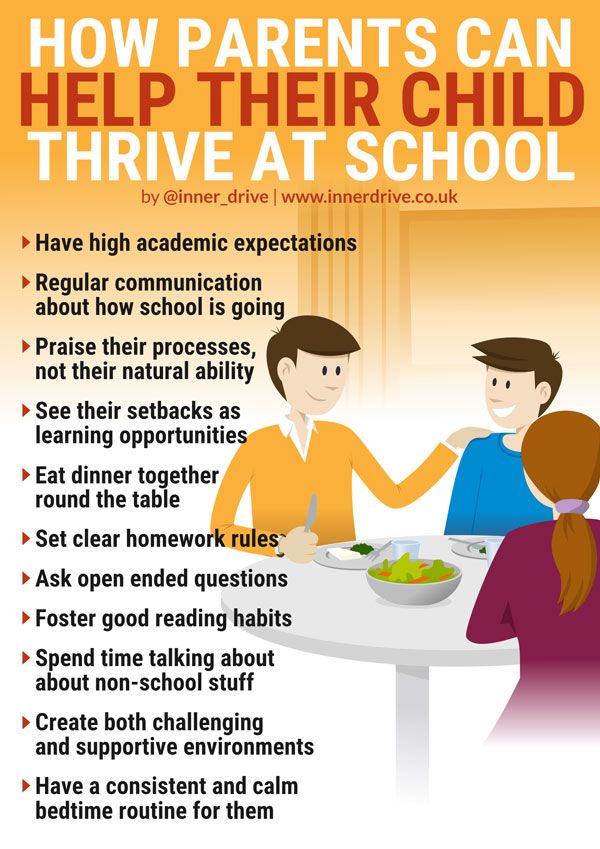
The goal of going to school is not about getting into college, finding a good job, earning a stable income, etc.
Of course, all of those are wonderful, but that’s a working mindset – you’re doing all that work for reasons other than enjoying the learning itself.
Going to school is about learning, acquiring knowledge, exploring new subjects and growing as a person.
In the US, the average expected years of schooling is 16.7 years1.
If a child doesn’t like school, that will be 16.7 years of misery.
You don’t want that for your child.
But here’s the good news.
If you can intervene early, like in kindergarten or even before kindergarten, your child will be getting off to a good start.
So, convince yourself to change from the working mindset to the learning mindset.
It sounds abstract, but here are 7 tangible steps for moving toward that goal.
1.
Stop referring to kid doing homework as your child’s “job”When you call it a “job”, you are implying that it will be all work and no fun.
Doing that is setting up a child to feel bad even when it’s not.
2.
Don’t tell your child, “you cannot play until you finish your homework”Again, by putting homework in a category separate from play, you are saying that it cannot be enjoyable.
The importance of play cannot be overstated. So make it count2.
Tell your child that they can do both (of course, only healthy physical play like basketball or biking, but not watching iPad).
They can decide the order of doing them as long as they do both by the end of the day.
You’d be surprised – giving a child autonomy over their homework schedule is one of the biggest motivators.
3. Don’t use “no homework” as rewards
I once heard that some teachers would give students with good behavior “no homework tonight” as a reward.
I was horrified.
Homework is for practicing what we’ve learned in school.
It helps us understand and remember better.
It’s not a punishment or torture that you need a “break” to feel better.
Don’t give your child the impression that homework is something you want to get away from.
4.
Do not nag, bribe or forceDo not nag and do not force your kid to do homework, whether through rewards or punishment.
“But then, how to make kids do homework?” parents wonder.
Don’t make your child do homework. Period.
Forcing or bribing will only backfire and reduce your child’s intrinsic motivation3.
The motivation to do homework needs to come from within the child themselves.
5. Let your child face the natural consequences
“But what to do when my child refuses to do homework?” many frustrated parents ask.
When your child refuses to do school work, let them… after you explain why doing homework is important for learning and what may happen in school if they don’t.
Walk them through the natural consequences for not doing homework – they won’t retain the information well and they will need to accept whatever natural consequences in school.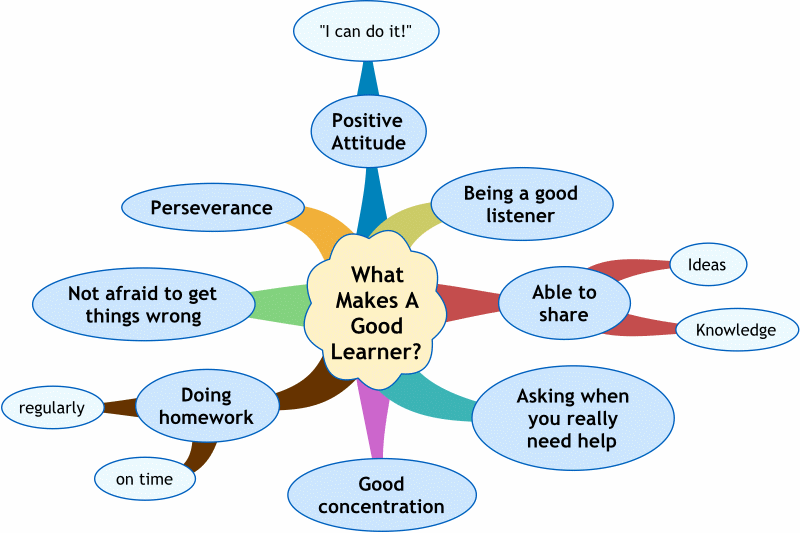 They will have to explain to the teacher why the homework was not done and they may lose some recess time, etc (but first confirm that the school doesn’t use corporal or other types of cruel punishment).
They will have to explain to the teacher why the homework was not done and they may lose some recess time, etc (but first confirm that the school doesn’t use corporal or other types of cruel punishment).
Wait… What?!
You think I should let my child fail?
Well, not doing homework in lower grades is not the end of your child’s academic career.
Think about this, you cannot force or bribe your child through college.
Help them understand the purpose of learning and doing homework now.
You’re helping them make the right decision by letting them understand and face the natural consequences sooner rather than later.
6.
Do homework with your childDon’t tell your kid that homework is important, show them through your action.
Do the homework with them.
You are telling your child you value this so much that you are willing to take the time to do it together. Besides, parental involvement is associated with better school performance4.
7. Make doing homework fun and positive
There are many ways to make homework for kids fun.
Let’s take a look at two methods I’ve used and the results.
You can try them or invent your own.
Method 1: Use doing homework as a “reward” (younger kids like kindergarteners)
Wait, you said that using rewards wasn’t good a moment ago.
Now you say, “use homework as a reward”?
Well, I said rewards were bad because you would be implying the activity you’re trying to motivate your child to do was not as good as the reward.
But here, I am using homework as a reward.
I am signaling to my child that doing homework is so good that she needs to “earn it”.
How to earn it?
You can try different things.
We used “If you behave, you can do homework with me. If you don’t behave, you can’t do homework.”
We started at preschool and it worked very well.
Parents who have tried this report good results in motivating their children to do homework, too.
But some of them have concerns…
Some parents are uncomfortable with this idea because it feels manipulative.
That’s because these parents do not believe in the idea that homework can be fun.
So they feel like they’re lying to the child.
But I genuinely like homework! (Yes, I’m officially a nerd)
So I have no problem helping my child learn to love homework like me.
If you are not convinced yourself, you may not want to try this method. Or if your child is older and already hates homework, it won’t work.
However, although I don’t agree with using manipulative measures in general, I don’t see this particular one harmful to children even if the parents do not like homework themselves.
Method 2: Turn doing homework into a game and a bonding activity
When my daughter was in preschool, I bought colorful homework books and we did them together.
Sometimes we took turns – she did one problem and I did the next and so on.
Sometimes we raced to see who would finish the page faster.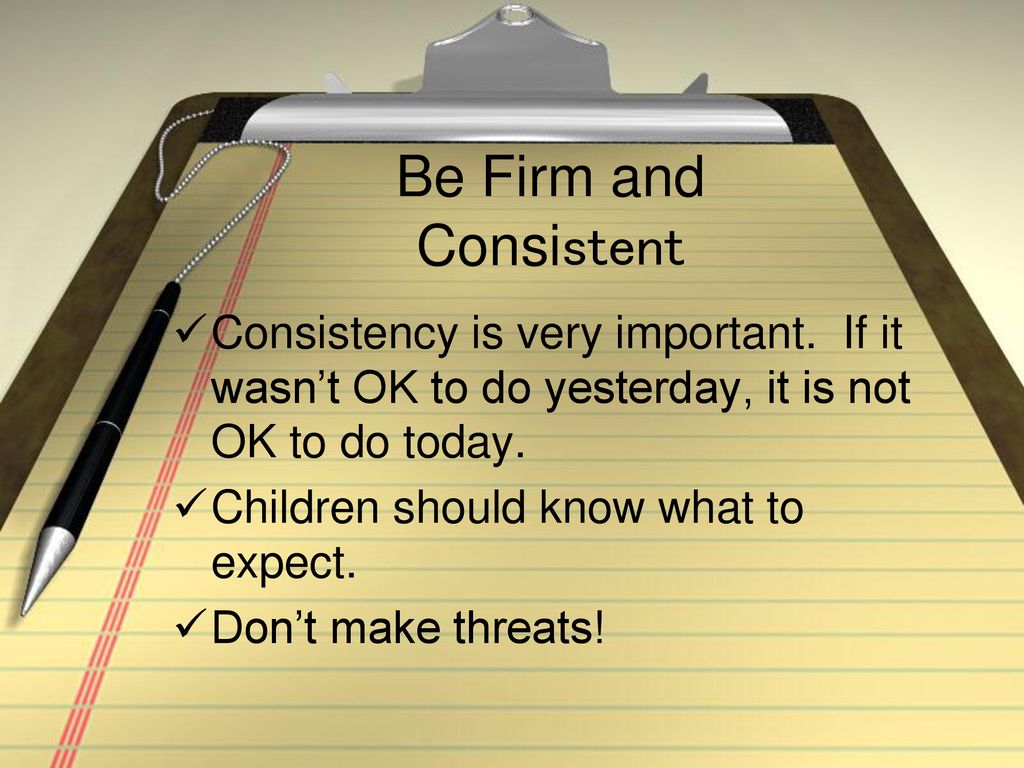
Sometimes I did them wrong intentionally so that my daughter could point out the wrong answers.
It was actually very empowering and satisfying for her to be able to catch Mom’s mistakes!
We celebrated when we both finished or got the right answers.
It was a lot of fun and my kid enjoyed doing that so much.
By the time she started kindergarten, she already loved homework.
In kindergarten, I couldn’t do her homework because, well, that’s her homework.
So I bought homework books that were similar to the ones she brought from school. Then I did problems alongside her as she did hers.
We still raced, celebrated, and had fun doing it.
The result?
At the beginning of her kindergarten year, my daughter was given two homework books to take home. The teacher would assign homework from the books every week. They were supposed to be used for the entire school year. But my kindergartener liked doing homework so much that she finished them all in one month! No yelling, screaming, threatening, or crying is required.
Also See: How to Motivate Older Kids to Do Homework Using Reverse Psychology
Need Help Motivating Kids?
If you are looking for additional tips and an actual step-by-step plan, this online course How To Motivate Kids is a great place to start.
It gives you the steps you need to identify motivation issues in your child and the strategy you can apply to help your child build self-motivation and become passionate about learning.
Once you know this science-based strategy, motivating your child becomes easy and stress-free.
Final Word On Motivating Your Kid To Do Homework
Getting your kid to do homework is only the first step in building a good learning habit. Finishing homework or getting good grades is not the purpose of going to school. Instill the love of learning in your child early on and your child will benefit for life.
References
-
1.

et al. xpected duration of education for all students: Countries Compared. NationMaster. https://www.nationmaster.com/country-info/stats/Education/Expected-duration-of-education-for-all-students
-
2.
Ginsburg KR. The Importance of Play in Promoting Healthy Child Development and Maintaining Strong Parent-Child Bonds. PEDIATRICS. Published online January 1, 2007:182-191. doi:10.1542/peds.2006-2697
-
3.
Lepper MR, Greene D. Turning play into work: Effects of adult surveillance and extrinsic rewards on children’s intrinsic motivation. Journal of Personality and Social Psychology. Published online 1975:479-486. doi:10.1037/h0076484
-
4.
Nye C, Turner H, Schwartz J. Approaches to Parent Involvement for Improving the Academic Performance of Elementary School Age Children. Campbell Systematic Reviews. Published online 2006:1-49. doi:10.4073/csr.2006.4
About Pamela Li, MS, MBA
Pamela Li is a bestselling author. She is the Founder and Editor-in-Chief of Parenting For Brain. Her educational background is in Electrical Engineering (MS, Stanford University) and Business Management (MBA, Harvard University). Learn more
She is the Founder and Editor-in-Chief of Parenting For Brain. Her educational background is in Electrical Engineering (MS, Stanford University) and Business Management (MBA, Harvard University). Learn more
View all posts by Pamela Li, MS, MBA | Website
How to Get Children to Do Homework
Parents often feel it’s their job to get their kids to do well in school. Naturally, you might get anxious about this responsibility as a parent. You might also get nervous about your kids succeeding in life—and homework often becomes the focus of that concern.
But when parents feel it’s their responsibility to get their kids to achieve, they now need something from their children—they need them to do their homework and be a success. I believe this need puts you in a powerless position as a parent because your child doesn’t have to give you what you want.
The battle about homework becomes a battle over control. Your child starts fighting to have more control over the choices in their life, while you feel that your job as a parent is to be in control of things. So you both fight harder, and it turns into a war in your home.
So you both fight harder, and it turns into a war in your home.
Over the years, I’ve talked to many parents who are in the trenches with their kids, and I’ve seen firsthand that there are many creative ways kids rebel when it comes to schoolwork. Your child might forget to do their homework, do their homework but not hand it in, do it sloppily or carelessly, or not study properly for their test. These are just a few ways that kids try to hold onto the little control they have.
When this starts happening, parents feel more and more out of control, so they punish, nag, threaten, and argue. Some parents stop trying altogether to get their children to do homework. Or, and this is common, parents will over-function for their kids by doing the work for them.
Now the battle is in full swing: reactivity is heightened as anxiety is elevated—and homework gets lost in the shuffle. The hard truth for parents is that you cannot make your children do anything, let alone homework. But what you can do is to set limits, respect their individual choices, and help motivate them to motivate themselves.
But what you can do is to set limits, respect their individual choices, and help motivate them to motivate themselves.
You might be thinking to yourself, “You don’t know my child. I can’t motivate him to do anything.” Many parents tell me that their children are not motivated to do their work. I believe that children are motivated—they just may not be motivated the way you’d like them to be. Keep reading for some concrete tips to help you guide them in their work without having to nag, threaten, or fight with them.
Also, keep in mind that if you carry more of the worry, fear, disappointments, and concern than your child does about their work, ask yourself, “What’s wrong with this picture, and how did this happen?” Remember, as long as you carry their concerns, they don’t have to.
Stop the Nightly Fights
The way you can stop fighting with your kids over homework every night is to stop fighting with them tonight. Disengage from the dance. Choose some different steps or decide not to dance at all. Let homework stay where it belongs—between the teacher and the student. Stay focused on your job, which is to help your child do their job. Don’t do it for them.
Let homework stay where it belongs—between the teacher and the student. Stay focused on your job, which is to help your child do their job. Don’t do it for them.
If you feel frustrated, take a break from helping your child with homework. Your blood pressure on the rise is a no-win for everyone. Take five or ten minutes to calm down, and let your child do the same if you feel a storm brewing.
Create Structure Around Homework Time
Set limits around homework time. Here are a few possibilities that I’ve found to be effective with families:
- Homework is done at the same time each night.
- Homework is done in a public area of your house.
- If grades are failing or falling, take away screen time so your child can focus and have more time to concentrate on their work.
- Make it the rule that weekend activities don’t happen until work is completed. Homework comes first. As James Lehman says, “The weekend doesn’t begin until homework is done.
 ”
”
Let Your Child Make Their Own Choices
I recommend that your child be free to make their own choices within the parameters you set around schoolwork. You need to back off a bit as a parent. Otherwise, you won’t be helping them with their responsibilities.
If you take too much control over the situation, it will backfire on you by turning into a power struggle. And believe me, you don’t want a power struggle over homework. I’ve seen many kids purposely do poorly just to show their parents who’s in charge. I’ve also seen children who complied to ease their parents’ anxiety, but these same kids never learned to think and make choices for themselves.
Let Your Child Own the Consequences of Their Choices
I’m a big believer in natural consequences when it comes to schoolwork. Within the structure you set up, your child has some choices. They can choose to do their homework or not. And they can choose to do it well and with effort or not. The natural consequences will come from their choices—if they don’t choose to do their work, their grades will drop.
When that happens, you can ask them some honest questions:
“Are you satisfied with how things are going?”
“What do you want to do about your grade situation?”
“How can I be helpful to you?”
Be careful not to be snarky or judgmental. Just ask the question honestly. Show honest concern and try not to show disappointment.
Intervene Without Taking Control
The expectation is that homework is done to the best of your child’s ability. When they stop making an effort, and you see their grades drop, that’s when you invite yourself in. You can say:
“It’s my job to help you do your job better. I’m going to help you set up a plan to help yourself, and I will check in to make sure you’re following it.”
Set up a plan with your child’s input to get them back on their feet. For example, the new rules might be that homework must be done in a public place in your home until they get their grades back up.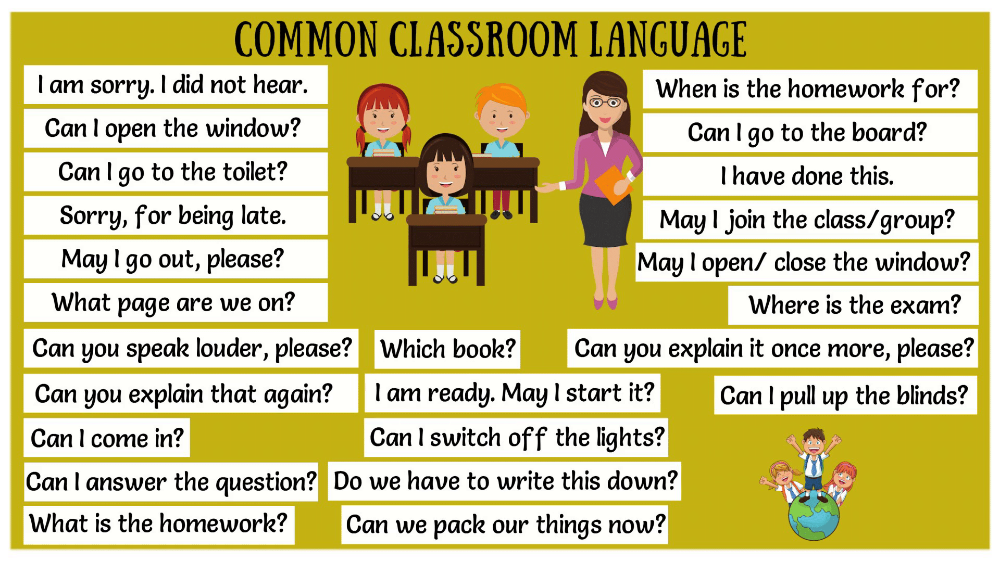 You and your child might meet with the teacher to discuss disciplinary actions should their grades continue to drop.
You and your child might meet with the teacher to discuss disciplinary actions should their grades continue to drop.
In other words, you will help your child get back on track by putting a concrete plan in place. And when you see this change, you can step back out of it. But before that, your child is going to sit in a public space and you’re going to monitor their work.
You’re also checking in more. Depending on your child’s age, you’re making sure that things are checked off before they go out. You’re adding a half-hour of review time for their subjects every day. And then, each day after school, they’re checking with their teacher or going for some extra help.
Remember, this plan is not a punishment—it’s a practical way of helping your child to do their best.
“I Don’t Care about Bad Grades!”
Many parents will say that their kids just don’t care about their grades. My guess is that somewhere inside, they do care. “I don’t care” also becomes part of a power struggle.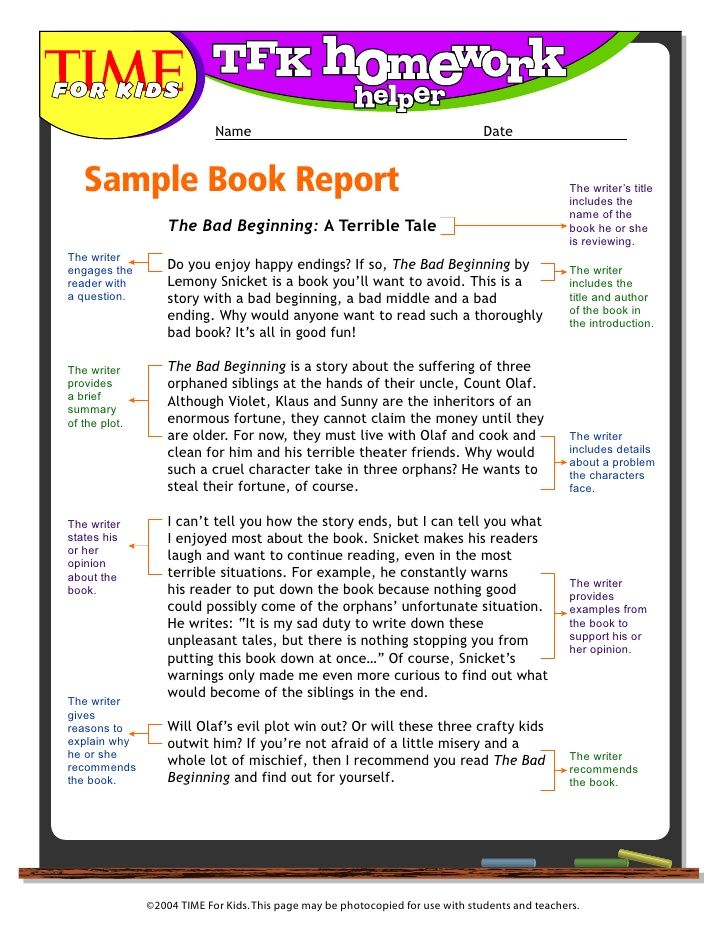
In other words, your child is saying, “I’m not going to care because you can’t make me. You don’t own my life.” And they’re right. The truth is, you can’t make them care. Instead, focus on what helps their behavior improve. And focus more on their actions and less on their attitude because it’s the actions that matter the most.
Motivation Comes From Ownership
It’s important to understand that caring and motivation come from ownership. You can help your child be motivated by allowing them to own their life more.
So let them own their disappointment over their grades. Don’t feel it more than they do. Let them choose what they will do or not do about their homework and face the consequences of those choices. Now they will begin to feel ownership, which may lead to caring.
Let them figure out what motivates them, not have them motivated by fear of you. Help guide them, but don’t prevent them from feeling the real-life consequences of bad choices. Think of it this way: it’s better for your child to learn from those consequences at age ten by failing their grade and having to go to summer school than for them to learn at age 25 by losing their job.
Think of it this way: it’s better for your child to learn from those consequences at age ten by failing their grade and having to go to summer school than for them to learn at age 25 by losing their job.
When Your Child Has a Learning Disability
I want to note that it’s very important that you check to see that there are no other learning issues around your child’s refusal to do homework. If they’re having difficulty doing the work or are performing below grade-level expectations, they should be tested to rule out any learning disabilities or other concerns.
If there is a learning disability, your child may need more help. For example, some kids need a little more guidance; you may need to sit near your child and help a little more. You can still put structures into place depending on who your child is.
But be careful. Many times, kids with learning disabilities get way too much help and develop what psychologists call learned helplessness. Be sure you’re not over-functioning for your learning disabled child by doing their work for them or filling in answers when they’re capable of thinking through them themselves.
The Difference Between Guidance and Over-Functioning
Your child needs guidance from you, but understand that guidance does not mean doing their spelling homework for them. Rather, it’s helping them review their words. When you cross the line into over-functioning, you take on your child’s work and put their responsibilities on your shoulders. So you want to guide them by helping them edit their book report themselves or helping them take the time to review before a test. Those can be good ways of guiding your child, but anything more than that is taking too much ownership of their work.
If your child asks for help, you can coach them. Suggest that they speak with their teacher on how to be a good student and teach them those communication skills. In other words, show them how to help themselves. So you should not back off altogether—it’s that middle ground that you’re looking for. That’s why I think it’s essential to set up a structure. And within that structure, you expect your child to do what they have to do to be a good student.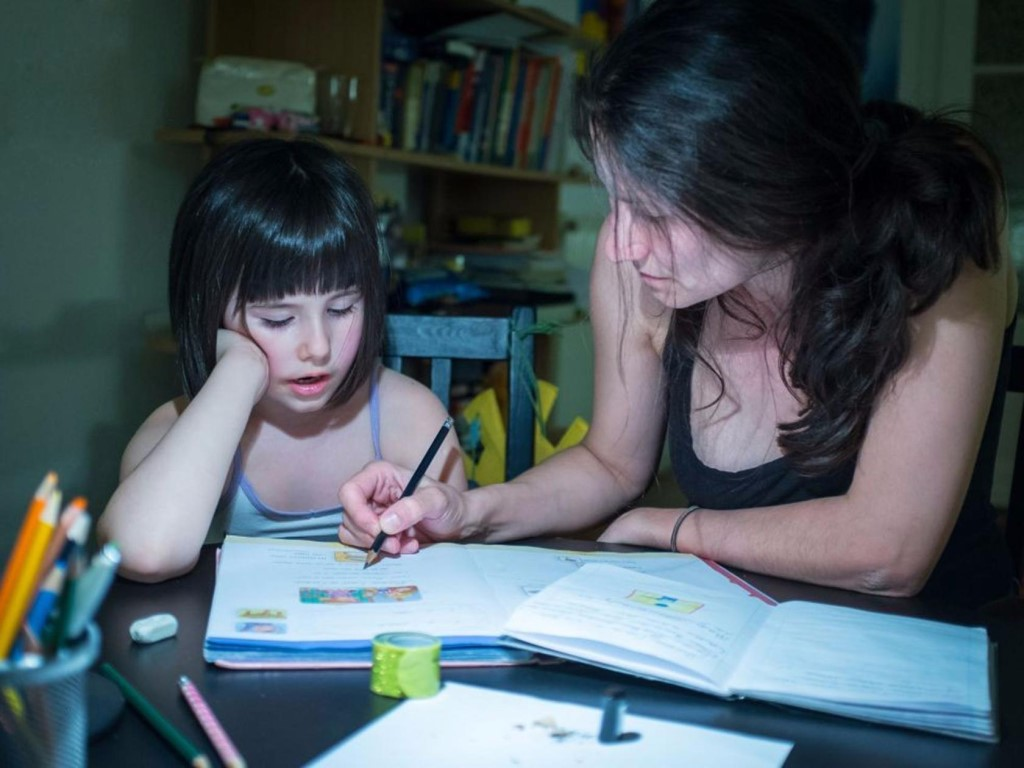
Focus on Your Own Goals
When you start over-focusing on your child’s work, pause and think about your own goals and what do you need to get done to achieve those goals. Model your own persistence and perseverance to your child.
Believe In Your Child
I also tell parents to start believing in their children. Don’t keep looking at your child as a fragile creature who can’t do the work. I think we often come to the table with fear and doubt—we think if we don’t help our kids, they’re just not going to do it.
But as much as you say, “I’m just trying to help you,” what your child hears is, “You’re a failure; I don’t believe you can do it on your own.”
Instead, your message should be, “I know you can do it. And I believe in you enough to let you make your own choices and deal with the consequences.”
Related content:
What Can I Do When My Child Refuses to Go to School?
“My Child Refuses to Do Homework” — How to Stop the Nightly Struggle Over Schoolwork
How to make a child do homework? What if the child does not want to do homework by himself?
The beginning of the school year for a primary school student is a real scourge for many parents and their children. A huge number of worried mothers of first-graders or older children complain that their child does not want to do homework, he is inattentive, lazy, capricious, the child cannot concentrate, and constantly resorts to the help of parents, even if homework is very simple. How to teach a child to do homework on their own, and what if the child does not want to learn lessons at all?
A huge number of worried mothers of first-graders or older children complain that their child does not want to do homework, he is inattentive, lazy, capricious, the child cannot concentrate, and constantly resorts to the help of parents, even if homework is very simple. How to teach a child to do homework on their own, and what if the child does not want to learn lessons at all?
In general, it is necessary to instill in a child independence, responsibility and the habit of doing homework on his own in the first grade. But, if attempts to do this were unsuccessful, it is also impossible to ignore the problem, and categorically. An important caveat is that the approaches to younger students at 6-7 years old and 8-9 years old are somewhat different, although the main incentive is still the main one (usually praise).
It is, of course, difficult to force a child to do homework, to teach him to do homework independently and accurately. But you need to try, otherwise today's hassle in the future will seem like "flowers" to you. So be strong, dear moms, and don't let your future genius descend!
But you need to try, otherwise today's hassle in the future will seem like "flowers" to you. So be strong, dear moms, and don't let your future genius descend!
HOW TO TEACH A CHILD TO DO LESSONS IN THE FIRST CLASS?
Well, it's started! All sorts of "amenities" associated with the enthusiasm of others about the talent and ingenuity of your preschooler, the inspired chores of equipping a first grader, and the celebration of September 1 itself, are a thing of the past. Instead, it turned out that the diligence and desire with which your baby literally recently added numbers, printed out the first words on paper, read sentences, suddenly disappeared somewhere. And doing homework turned into a real nightmare. But what happened, why does the child not want to do homework, where has the desire to learn gone?
Why does the child not want to do homework?
Educational psychologists have a very clear opinion on this matter. If a first-grader does not want to learn lessons, this can mean only one thing: the child does not succeed. And there is only one way out - parents should help him and at first do homework with the child together, patiently and sympathetically. But there are some very important psychological points here.
If a first-grader does not want to learn lessons, this can mean only one thing: the child does not succeed. And there is only one way out - parents should help him and at first do homework with the child together, patiently and sympathetically. But there are some very important psychological points here.
Even if your little one attended kindergarten or went to special preschool classes, he was never required to do homework every day, in other words, he just wasn't used to it. Moreover, involuntary attention and memory - when a child can memorize the contents of almost an entire book without noticing it - begin to fade, and just at six or seven years old. But arbitrariness - the ability to force oneself to do something by an effort of will - is just beginning to take shape. Therefore, your first-grader is now completely unsweetened, and laziness has absolutely nothing to do with it. Which exit?
How to get a child to do homework?
If a child does not want to do homework, parents should introduce a certain routine. Determine with him a specific time when exactly he will sit down to do homework. This can be quite different times on different days, especially if the first-grader has additional loads - circles, sections, etc.
Determine with him a specific time when exactly he will sit down to do homework. This can be quite different times on different days, especially if the first-grader has additional loads - circles, sections, etc.
Of course, after school you should rest, and not just have lunch. Be sure to take into account the intra-family schedule - the child should not sit at home when dad comes home from work, or grandma comes to visit, or you and your younger brother or sister go to the playground, and so on. In this case, the child cannot concentrate, and it will be extremely difficult to force the child to do homework, he may even be offended and say “I don’t want to learn homework.” And by the way, he will be absolutely right - why study should become akin to punishment for him, it is so difficult for him, he tries, and he is also punished for it!
If this is provided for, then without a good reason it is absolutely impossible to deviate from the schedule. Otherwise, there should be penalties, the installation of which you also need to agree with the child in advance.-Step-3-Version-2.jpg/aid1019565-v4-728px-Start-a-Business-(for-Kids)-Step-3-Version-2.jpg) Surely, this will come down to depriving him of some personal pleasures, for example, “weaning” from a computer, TV, and so on. It is not advisable to deprive attendance of trainings and walks in the fresh air, since your baby has already begun to move much less and spends a lot of time indoors since the beginning of the school year.
Surely, this will come down to depriving him of some personal pleasures, for example, “weaning” from a computer, TV, and so on. It is not advisable to deprive attendance of trainings and walks in the fresh air, since your baby has already begun to move much less and spends a lot of time indoors since the beginning of the school year.
It is best to do homework with a child after an hour and a half after returning from school, so that the child has time to rest from classes, but not too overexcited or tired from playing with friends and home entertainment. The intellectual activity of children increases after a little physical activity - this is a scientific fact, so he needs to play after school, but only in moderation.
As soon as a first-grader comes home from school, help him put his textbooks and notebooks out of his bag. Fold them neatly on the left corner of the table - you will shift them to the right corner later, as you complete your homework. You can open a notebook and a textbook in advance - it is always easier to continue any work than to start it.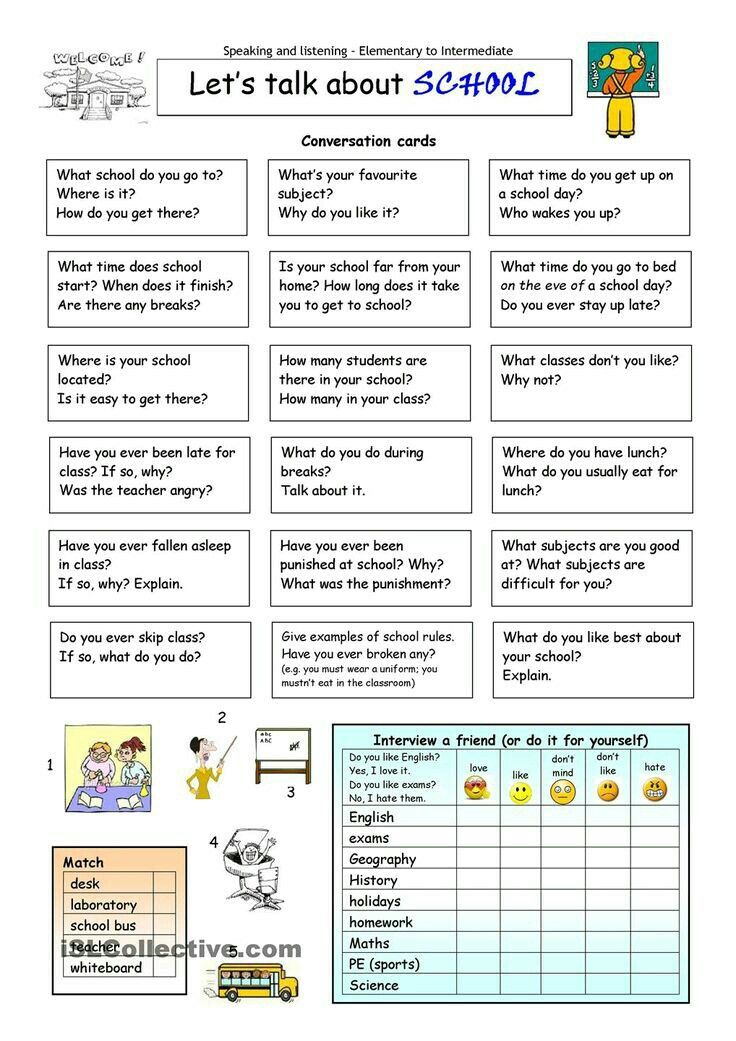
When the appointed time comes, ask the child to remember what was given at home. It is important that he knows that this also applies to him, despite the fact that his mother has everything written down anyway. If the child at least partially remembered, it is necessary to praise him.
If a first-grader can't write numbers or letters, a simple technique can help - playing school, where your child will be the teacher and you will be the student. Let him “teach” you to write numbers or letters: you graduated from school a long time ago and managed to “forget” something. Let him first write with his finger in the air, pronouncing his actions aloud in detail, and only then write it down in a notebook. While writing, the child should be silent, as babies hold their breath when they try and cannot speak.
It is very useful to sculpt numbers and letters from plasticine, to learn to recognize them by touch. You can display them on a tray with cereal, a finger in the sand, etc. If the child cannot concentrate and gets tired quickly, there is no point in insisting on continuing classes. It is better to announce a short break - five minutes, give the task to jump 10 times, or, for example, crawl under a chair. The main thing is not to get carried away, the number of exercises should be strictly limited, otherwise you will quickly lose control over the situation and will not be able to force the child to do homework again.
If the child cannot concentrate and gets tired quickly, there is no point in insisting on continuing classes. It is better to announce a short break - five minutes, give the task to jump 10 times, or, for example, crawl under a chair. The main thing is not to get carried away, the number of exercises should be strictly limited, otherwise you will quickly lose control over the situation and will not be able to force the child to do homework again.
If reading is difficult for a child, try to attach leaflets with syllables and short words written in different fonts, in different colors, turned “upside down”, sideways around the house, in various places. This will help you unconsciously learn to recognize letters and develop automatism when reading.
To teach your child to do his homework on his own, teach him to use dictionaries, encyclopedias and reference books. Ask him what this or that word means, pretend that you do not know him and ask the child for help. Trying to cope with the task without outside help and find answers to all questions on their own, the baby learns to think rationally, thoughtfully. And, besides, the information learned in this way is remembered much better than the answers provided “on a silver platter”.
Trying to cope with the task without outside help and find answers to all questions on their own, the baby learns to think rationally, thoughtfully. And, besides, the information learned in this way is remembered much better than the answers provided “on a silver platter”.
If the child still does not want to do homework, it is necessary to fundamentally change the approach. Be wiser, include "cunning" and "helplessness": "Help me, please. I can’t read something in any way ... ”,“ Something in my handwriting has completely deteriorated. Remind me how to write this letter beautifully ... ". Not a single child can resist such an approach. And of course, thank and praise him more often! Even for the smallest achievement is the main key to success!
Unfortunately, it is not uncommon for students in elementary grades to tell their parents “I don't want to learn homework”, do not want to do homework on their own and constantly seek the help of their parents, even if the homework is very simple. At the same time, these same children can be happy to help around the house, go to the store, and work with younger children in the family. Parents are at a loss - it seems that the child is not lazy, which means that it is impossible to explain his attitude to homework by simple laziness, but it is also impossible to ignore the problem with lessons. What to do? First of all, you need to find the real reason why the child does not want to do homework.
At the same time, these same children can be happy to help around the house, go to the store, and work with younger children in the family. Parents are at a loss - it seems that the child is not lazy, which means that it is impossible to explain his attitude to homework by simple laziness, but it is also impossible to ignore the problem with lessons. What to do? First of all, you need to find the real reason why the child does not want to do homework.
HOW IS SCHOOL? The most important thing is to understand in time how your child's relationship develops at school - with peers, with a teacher. Unfortunately, it is not uncommon for children, faced with the first failures, and being ridiculed by classmates and having met the indifference of the mentor (this happens quite often in our time), begin to experience fear, fear the next mistakes. Such feelings and emotions can be so strong that the child cannot concentrate, unable to cope with them.
Children cannot explain, and often do not understand, what exactly is happening to them, but their behavior changes significantly. The main task of parents is to recognize the negative situation as soon as possible and immediately take appropriate measures. Of particular danger is the fact that the child closes in on himself from such fears, “disconnects” from the world around him, becomes somewhat inhibited. At the same time, he can look outwardly absolutely normal, serene and calm, but this impression is deceptive. No one but you knows your baby so well as to notice something wrong in time and correctly interpret it.
The main task of parents is to recognize the negative situation as soon as possible and immediately take appropriate measures. Of particular danger is the fact that the child closes in on himself from such fears, “disconnects” from the world around him, becomes somewhat inhibited. At the same time, he can look outwardly absolutely normal, serene and calm, but this impression is deceptive. No one but you knows your baby so well as to notice something wrong in time and correctly interpret it.
If such a psychological trauma is not removed in a timely manner, it can develop into a school neurosis, as psychologists call it, which can be fraught with a nervous breakdown and various psychosomatic ailments. What should parents do in such cases? First of all, you need to show restraint and patience, calm the child and help him. You should do homework with the child, even when you are sure that he can easily cope on his own and can do homework on his own. In no case do homework for him, just be a support for him, encourage, praise - give him the opportunity to make sure that he succeeds.
DIFFICULT JOBS. There are situations in which the reluctance to do homework on their own is due to their objective difficulty. For example, at these times, the child may well not have developed logical thinking. In this case, he simply does not consider it necessary to do something that he does not understand. And your attempt to force the child to learn the lessons will only introduce him into even more confusion and provoke defiance.
Which way out? Parents need to follow the reasoning of their student about the progress of solving the task, so they can understand exactly where the difficulties arise. You can not get angry and scold the child for what he does not understand. You should teach the child, help him, explain with examples, and only then wait for him to be able to do his homework on his own. He, of course, thinks and thinks, only he does it a little differently, but in a different way than you - does not mean wrong.
LACK OF ATTENTION. It happens that a child does not want to do homework, refuses to do homework, just because in this way it is easiest to attract the attention of parents. In this case, his “I don’t want to learn lessons” means that he feels lonely, feels a lack of parental care and affection. Then he instinctively tries to solve this problem, and since he is a smart kid, he understands that poor academic performance will cause parents concern and increased attention to him. That is why he does not want to do his homework, on purpose, and perhaps unconsciously, he "flops" his studies.
It happens that a child does not want to do homework, refuses to do homework, just because in this way it is easiest to attract the attention of parents. In this case, his “I don’t want to learn lessons” means that he feels lonely, feels a lack of parental care and affection. Then he instinctively tries to solve this problem, and since he is a smart kid, he understands that poor academic performance will cause parents concern and increased attention to him. That is why he does not want to do his homework, on purpose, and perhaps unconsciously, he "flops" his studies.
The way out here is simple - surround the child with due attention and care. Moreover, it does not have to be joint homework, rather the opposite. If you want to teach your child to do homework on their own, encourage him to actively communicate for his efforts. But this must also be done wisely so that the child does not develop the feeling that your love can only be earned, he must know that you love him even when he fails and nothing works out.
LAZINESS AND IRRESPONSIBILITY. Unfortunately, it also happens that a child does not want to do homework simply because he is lazy and treats his studies irresponsibly. It is unrealistically difficult to make him learn lessons, and when he succeeds, the quality is out of hand, done “anyhow”, if only they “left behind” him. The blame for this lies entirely with the parents, who did not bring up in time in the child a sense of responsibility for their own actions and deeds. But now it is not too late, so correct the situation that has arisen, do not be lazy to educate your child yourself.
Explain to him that he studies not for his parents, not for grades, but for himself first of all. If he received a “deuce” at school for an unfulfilled task, do not reproach him and do not scold him - he must explain himself for what reason he received a bad mark. Ask him this question - show patience and calmness - this will make the child analyze his own actions, and it will probably be awkward to explain to him, so next time he will prefer to learn the lessons.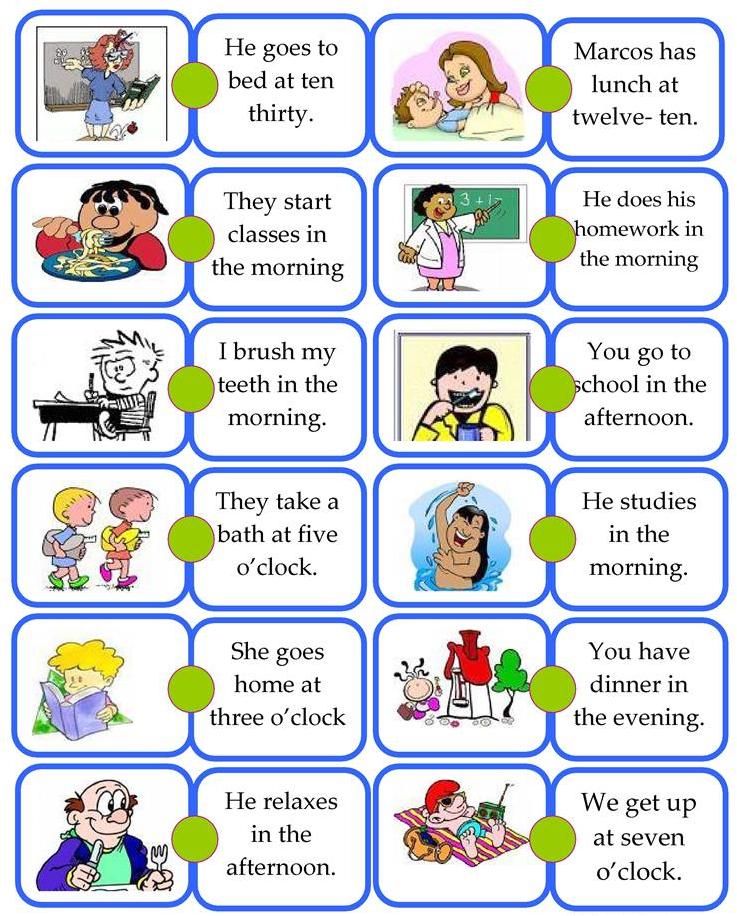
In some cases, it will not be superfluous to use punishments, for example, for unfinished homework and deprive of some life values of deuces. For example, to introduce a ban on playing on the computer, or going to the cinema, and so on - you know better what exactly he prefers to study and appreciates especially highly. The child should know about this, and then let him decide for himself what is more important for him. Just do not cancel your own decisions - feeling weak, he will begin to boycott you in everything, and not just in school.
Children studying in elementary school require unlimited patience and increased attention. Here, unfortunately, nothing can be done - this is a fact, you need to come to terms with it. Do not leave children alone with their problems, this can have bad consequences. Be caring, attentive and patient - the baby will grow up and everything will work out, and problems will bypass!
How to make a child do homework
The whole truth about how to choose a backpack for a first grader.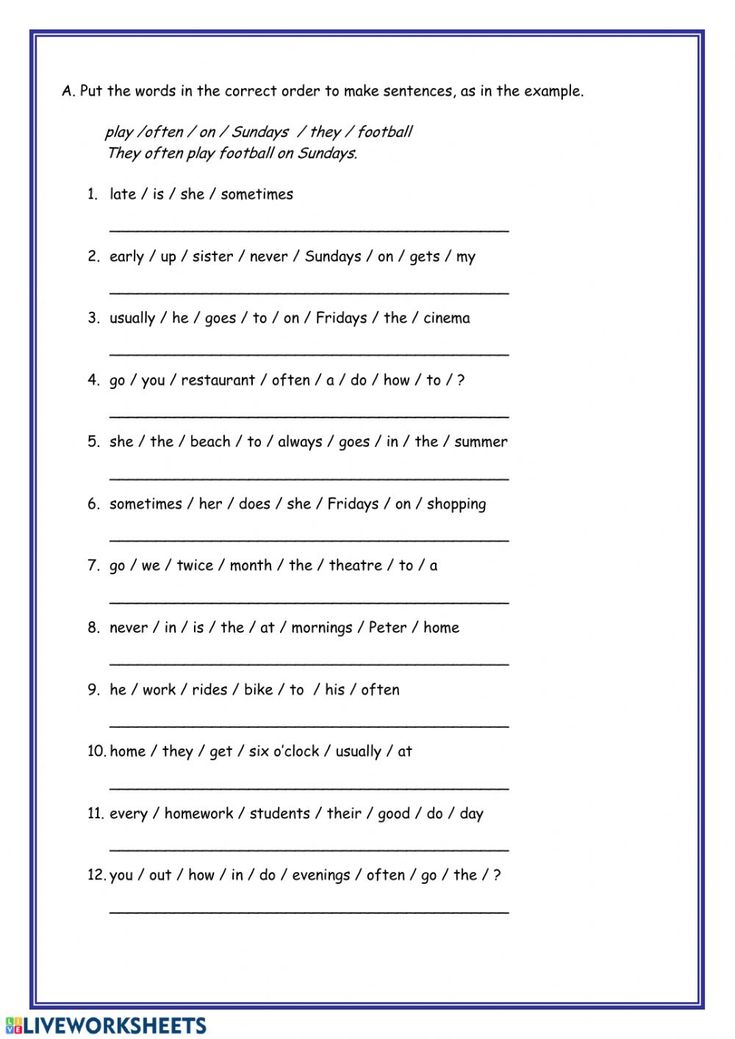
- Articles
- How to make a child do homework
An ideal student should cope with the lessons on his own without “catching up” from adults. But ideal students are rare. Most parents help their kids with their homework, or at least make them sit down to their books. You need to understand: “to force” is not to shout or psychologically put pressure, if the well-being and health of the child is more important to you. It is much better to motivate, to interest - once having fallen in love with study, the student will stop evading it, and the parents will avoid the need to take on the belt or persuasion every time.
All children are different. How does your child do homework?
Before you panic and complain that the child does not want to do homework, take a closer look at how he starts this process - maybe the problem is in the approach to learning. One of the reasons why it is difficult for students to learn how to do homework correctly is a lack of concentration.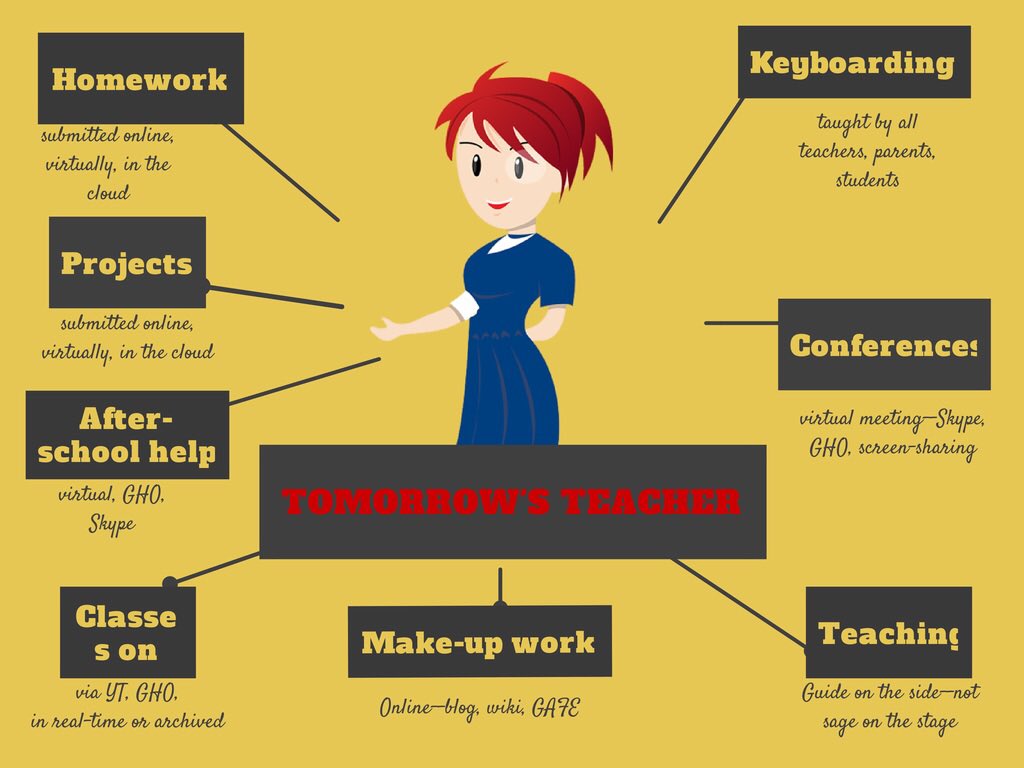 Many modern children suffer from this, who from an early age get used to the frantic pace of life. When there are a lot of opportunities around, various options for games, access to the Internet, online resources, it is very difficult to keep your attention on one thing for a long time - you want to have time to try everything. You don't have to be a psychologist to understand that you should try a special approach to such a child. One of the best options: sit down at the table with him, plan your time so that you alternate between reading and solving examples, written tasks and oral ones (if, for example, you need to memorize a verse). Switching attention from one subject to another, your son or daughter will learn to start lessons with interest.
Many modern children suffer from this, who from an early age get used to the frantic pace of life. When there are a lot of opportunities around, various options for games, access to the Internet, online resources, it is very difficult to keep your attention on one thing for a long time - you want to have time to try everything. You don't have to be a psychologist to understand that you should try a special approach to such a child. One of the best options: sit down at the table with him, plan your time so that you alternate between reading and solving examples, written tasks and oral ones (if, for example, you need to memorize a verse). Switching attention from one subject to another, your son or daughter will learn to start lessons with interest.
Rarely useful and the second extreme - excessive concentration. A focused child can do his homework on his own, but doing it can take away all his strength and completely exhaust him by the end of the day. Constant overwork will reduce performance, may affect academic performance and health, and this will discourage the desire to study. What to do? Teach your little workaholic to be distracted, do exercises, train fine motor skills in between lessons (for example, you can use constructors, puzzles, modeling).
What to do? Teach your little workaholic to be distracted, do exercises, train fine motor skills in between lessons (for example, you can use constructors, puzzles, modeling).
Watch how much time your child spends on homework. If it takes too long, find out if teachers are overloading him, check with the school psychologist. Maybe some subject is more difficult, and you need extra help with it. Another reason is the wrong distribution of time. If your student does not have time management skills, help him, teach him how to properly distribute tasks, what and when to do. The situation may be the opposite - the child, on the contrary, does homework in 15-20 minutes in a hurry. So many mistakes appear, and knowledge sags. How to help in this case? There are two options. First, let him make mistakes and learn from them. Second - seek help from a psychologist who will suggest exercises for concentration, perseverance. Read also our material "How to develop attention in a child."
What causes a reluctance to study
It is difficult to make people fall in love with studies if some external factors caused rejection.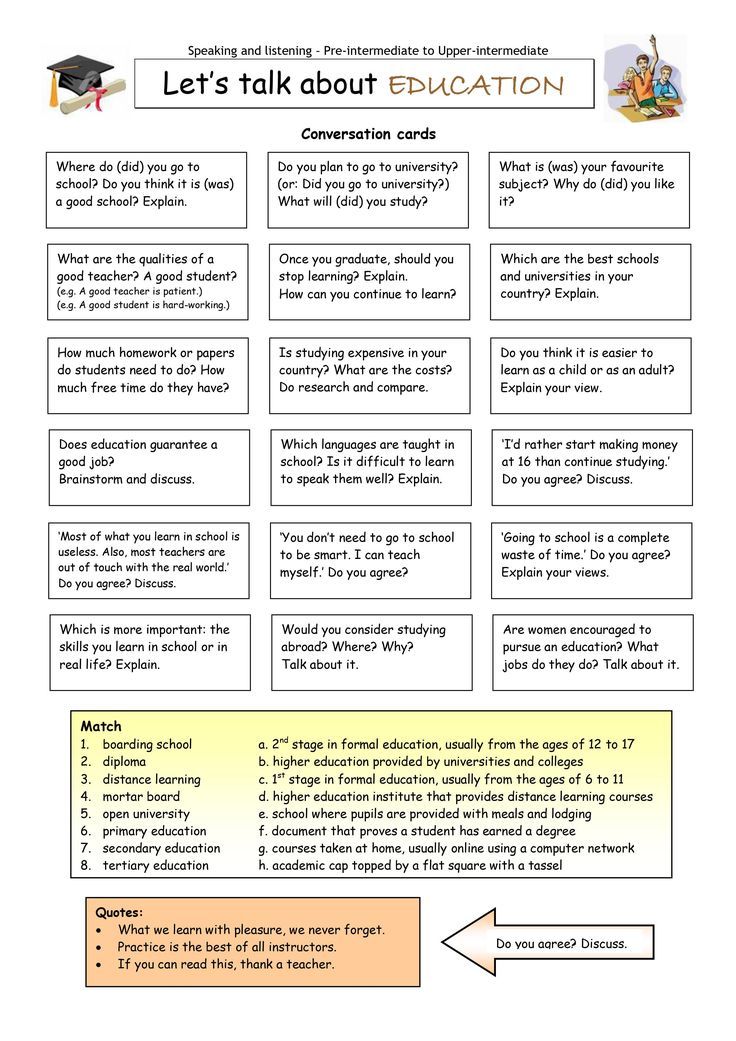 Before you once again force your child to sit down for homework, find out what is the reason for the reluctance to study. According to psychologists, there may be several such reasons:
Before you once again force your child to sit down for homework, find out what is the reason for the reluctance to study. According to psychologists, there may be several such reasons:
- No incentive. The child must understand why he learns. Explain to him that the main thing is not good grades, praise from teachers and yours, but knowledge that will help him fulfill his dreams in the future. In addition, children tend to imitate their parents. Remember: you are the main example for your child. Seeing you with a book, he will also want to read, seeing that you are going for a run - to run.
- Stressful situations at school. School stress can take away all the energy in a child, leaving no strength to do homework. The causes of stress can be different - misunderstandings with classmates, problems with teachers, conflicts with elders, which make it difficult to integrate into the educational process. More than half of the students do not like school precisely because of the stress that awaits within its walls.
 Make sure that your child is not affected by bullying or other conflicts.
Make sure that your child is not affected by bullying or other conflicts. - Excess pressure. The more you try to force the child to do homework, the more resistance there will be. These are all nuances noted by psychologists, and they only talk about the mental health of your son or daughter - it's normal when he or she resists pressure. Therefore, do not impose your opinion, but be interested. Also detrimental would be a scenario where parents are more interested in grades than the student. Collecting a school backpack for a child, doing homework for him, commanding what to wear are bad options. It is much better to buy him a backpack that he wants to collect himself (you can do it here), and give him the freedom to choose clothes, the rhythm of completing tasks.
- Family stress. The atmosphere at home affects the well-being of the child. When he constantly hears quarrels and becomes a witness to “showdowns”, all thoughts will be directed to such conflicts, and not to lessons.
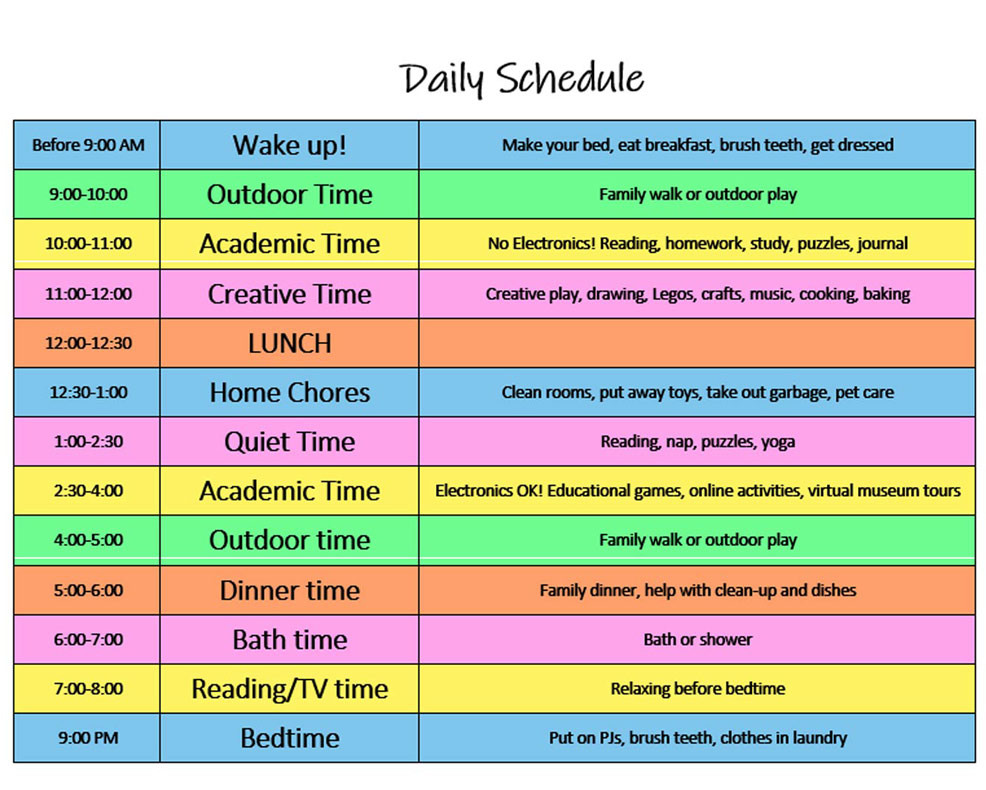 Due to family problems, the baby becomes nervous, withdrawn, ceases to pay attention to learning. Try to protect him from such cases.
Due to family problems, the baby becomes nervous, withdrawn, ceases to pay attention to learning. Try to protect him from such cases. - Busy schedule and lack of rest. After returning from school, the child needs 1.5-2 hours of rest. Do not force him to sit down for lessons as soon as he crosses the threshold of the house.
- Psychological nuances. Make sure that homework is not interfered with by external and internal factors. Such a factor can be, for example, a bad company that skips school lessons, makes fun of diligence in studies. The problem may depend on if the child prefers computer games to lessons, or in complexes, when peer ridicule discourages the desire to go to school.
Psychological advice
Psychologists are unanimous in the main thing - the child refuses to do homework not because of laziness. Lack of willpower, motivation - much more common reasons. In addition, it is worth making sure that the performance is not affected by excessive loads.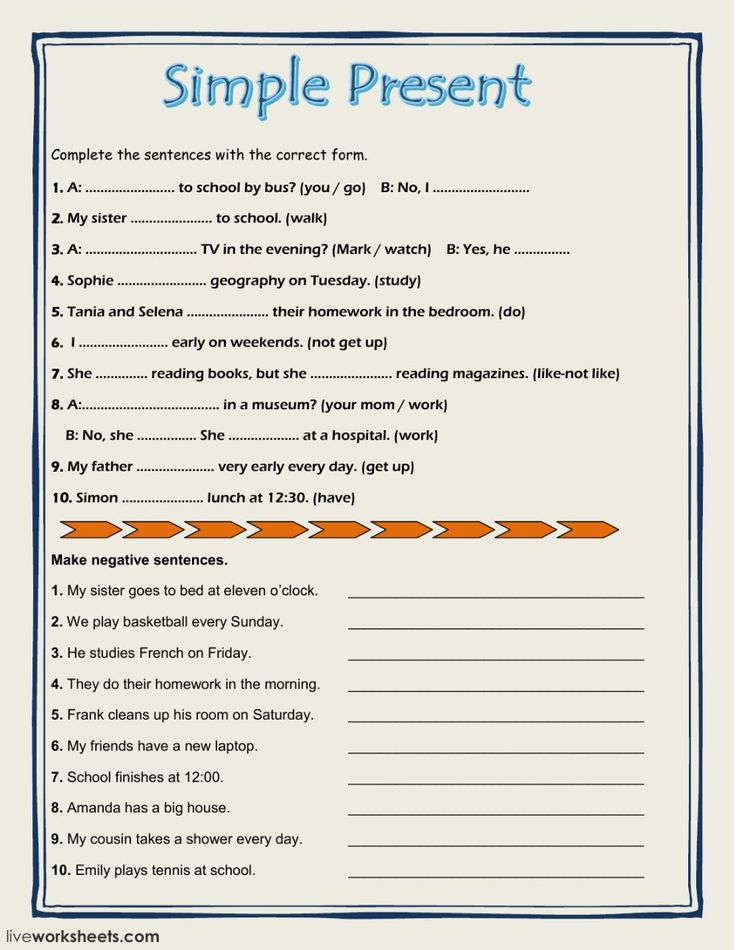 One of the recommendations of psychologists is to give the child at least 4 hours a day, which he can spend at his own discretion - to do what he wants, and not what the parents require. Forget about forcing the child to attend all kinds of sections, electives, a tutor - if he is against it, this will only cause neuropsychiatric disorders.
One of the recommendations of psychologists is to give the child at least 4 hours a day, which he can spend at his own discretion - to do what he wants, and not what the parents require. Forget about forcing the child to attend all kinds of sections, electives, a tutor - if he is against it, this will only cause neuropsychiatric disorders.
Psychologists pay special attention to the behavior of parents. It is worth remembering: homework is given to the child, not to the father-mother, occasionally you can help, but it’s right when he unleashes tasks, he will do written examples on his own! Excessive parental anxiety does not help the child in any way - let him make mistakes, teach him to become independent, to bear responsibility. If your son or daughter asks for help, provide it, but get rid of impositions, psychologists strongly recommend.
Effective ways to motivate a child
Using the advice of psychologists, you can correctly develop a line of behavior in order to force the child to do homework of his own free will. All of the above can be supplemented with methods of qualitative motivation:
All of the above can be supplemented with methods of qualitative motivation:
- Praises, but no financial incentives. Praise the child for every, even the smallest achievement, making him want to develop, improve. Even when the lesson is not perfect, praise for the effort - next time he will make even more of them. However, material incentives, gifts for success can be harmful - over time, the student will get used to it, will begin to demand more. Children must understand that they are learning for themselves, and not for dad or mom.
- No penalty for errors. Mistakes are a natural consequence of the learning process, it is impossible to learn new things without making mistakes, wrong steps. Do not scold or punish the child for them - they learn from mistakes. On the contrary, correctly encourage not to stop because of one wrong decision.
- No requirements too high. Accept the fact that some subjects are easier for a child than others. Stop demanding perfection from him - better let him set priorities on his own.

Learn more











